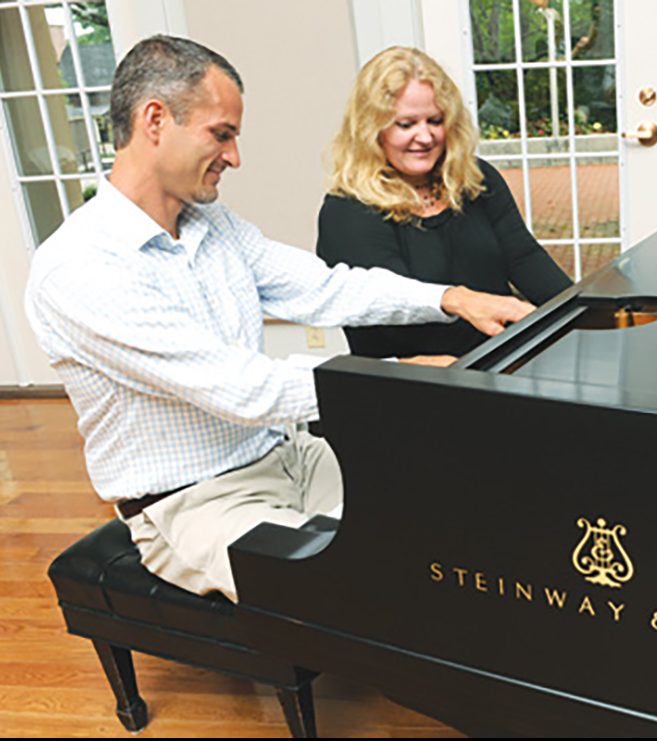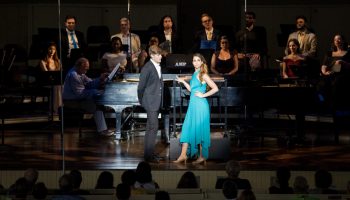Nicola Melville and John Milbauer spent the same four summers at Chautauqua Institution as piano students almost 30 years ago. In the early 2000s, they both joined as piano faculty and are now co-chairs of the School of Music’s Piano Program. The 2018 season will be the 20th summer at Chautauqua for both of them.
Melville and Milbauer will present “Music for Two Pianos” at 4 p.m. Saturday, July 21, in Elizabeth S. Lenna Hall as part of the Chautauqua Chamber Music Resident Artist Series. The program will include the music of Mozart, Debussy, Brahms and Doug Opel.
After attending Chautauqua and then the Eastman School of Music together, Melville and Milbauer went their separate ways to start their respective careers and only maintained intermittent contact. But when they found themselves both teaching at Chautauqua, their common educational background made it natural to play together.
“When you’ve had similar training, lots of movements are similar — how you make music, how you phrase, how you feel rhythm — it’s all similar,” Milbauer said. “And so when those are embedded at a young age, it makes it easier to play collaboratively later on.”
The two pianists are both particularly focused on quality of sound in both their performance and their teaching, something they absorbed from their studies at Chautauqua. Decades later, they’re carrying that legacy forward.
“Sound quality used to be a huge part of the piano experience and why people went to concerts,” Milbauer said. “It wasn’t just the music, it was also the actual sound of the instrument, and they wanted to hear the instrument sounding beautiful. And that’s not a big part of training any more.”
Each piece on the program will showcase beautiful sounds in different ways, Milbauer said. The Mozart will be played clearly with pure tone, while the duo will aim for a more rounded, full sound in the Brahms.
It’s not all the same between the two, however. They have plenty of points of divergence, which Milabauer said keeps rehearsals engaging. They bring different strengths to the table, resulting in a stronger final product.
According to Milbauer, Melville brings “extremely tasteful music-making” to each performance, with beautiful sounds and beautiful phrasing. He said this helps rein in his interpretations, which can be a little “out of the box.”
Conversely, Melville praised Milbauer as having “confident panache as a performer,” and having an “infectious and buoyant” approach, which injects their performances with swagger and energy.
Three of the pieces on the program are written for duos, where the pianists will be sitting at two separate pianos. The Mozart, however, is written for “four hands,” which means they will both be sitting at the same piano.
This poses some interesting choreographic difficulties, according to Milbauer. Mozart intentionally wrote moments where one pianist will have to reach over the hand of the other, or they will be playing uncomfortably close to one another.
“I think Mozart was having fun knowing that he was running hands together,” Milbauer said. “There was some cheekiness to four hands in the 18th century. They knew that you’d almost be pinching one another. In our case, we’re not pinching another — we’re sort of knocking each other out of the way every once in a while.”





